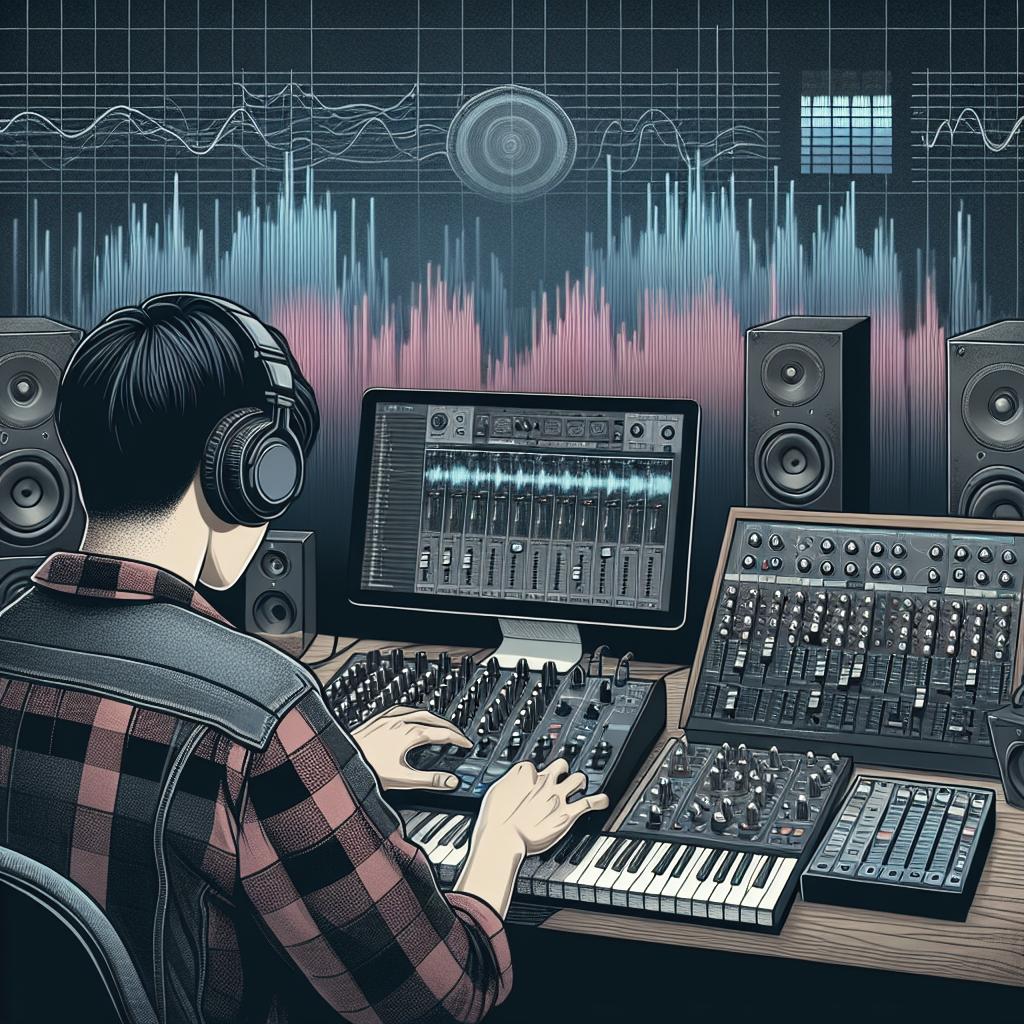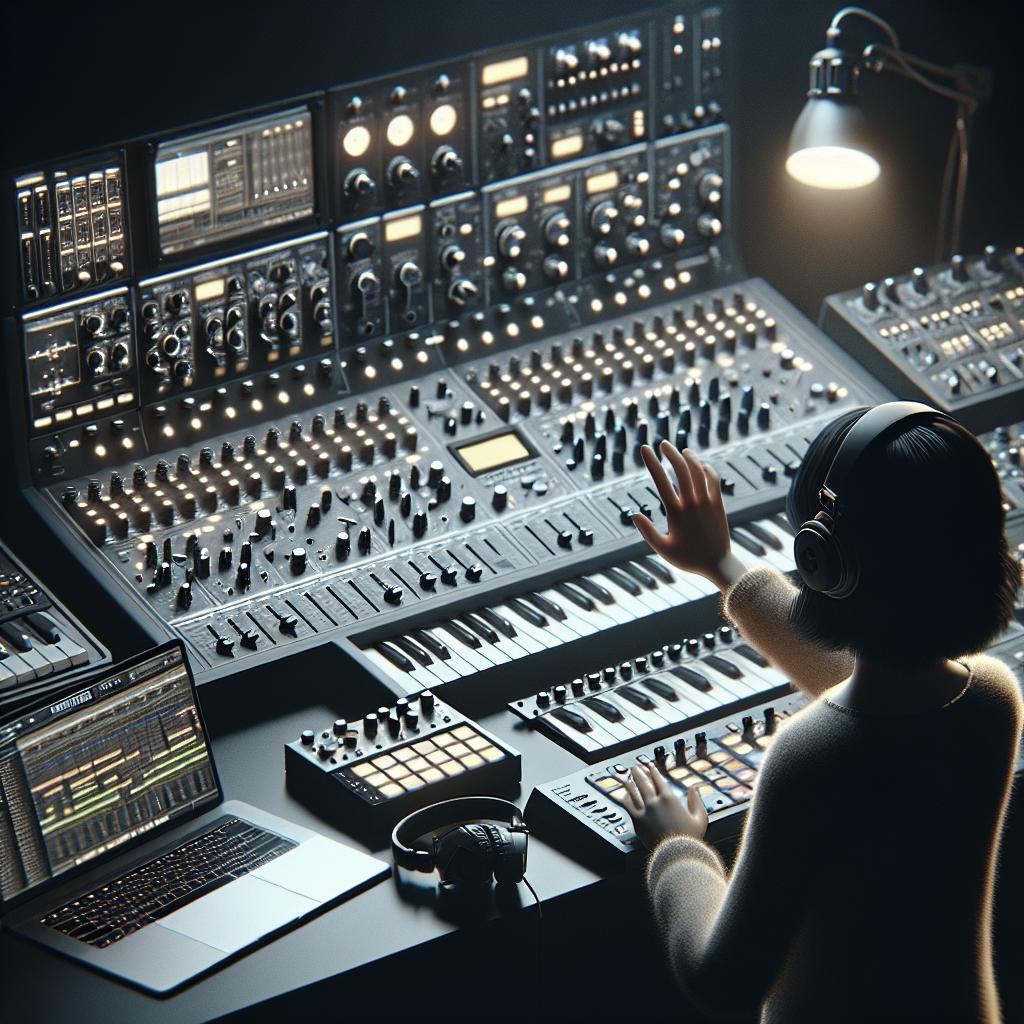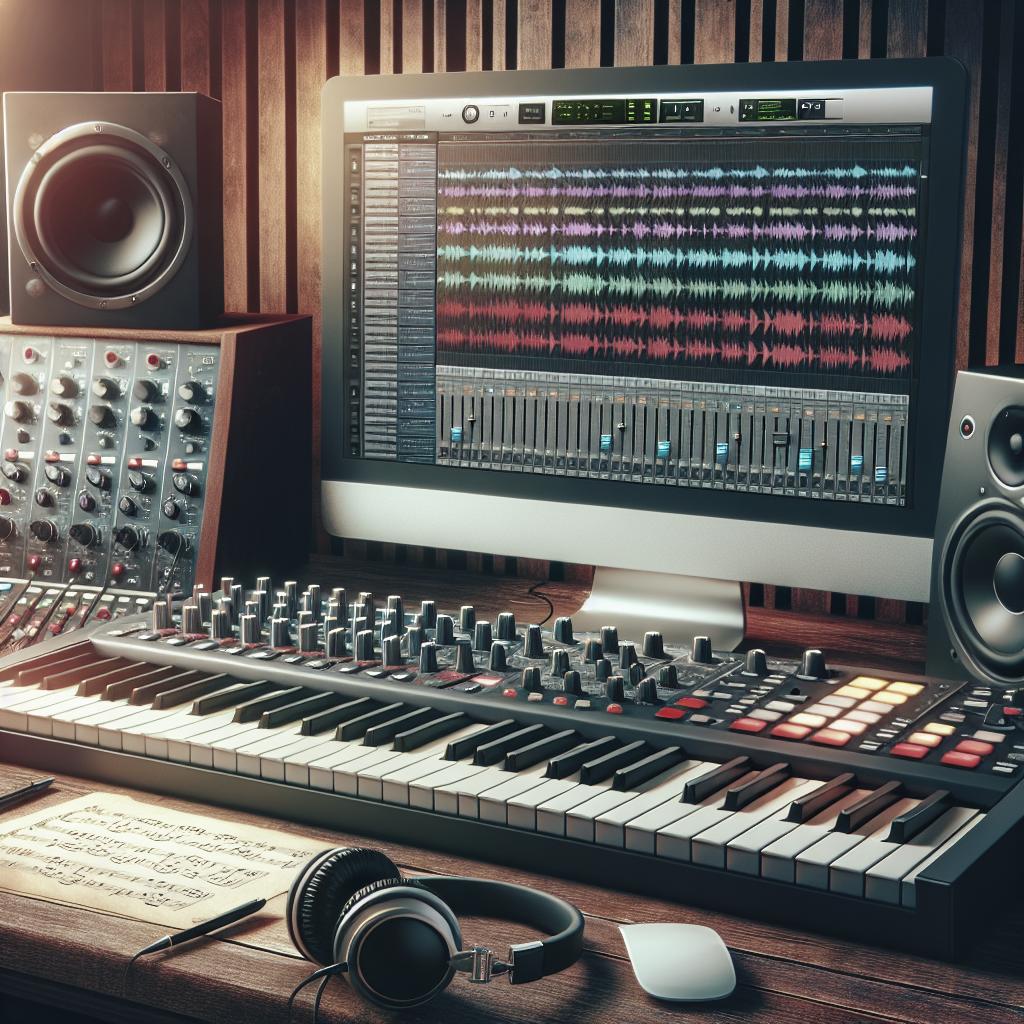<>
Creating a professional electronic music demo is a crucial step for aspiring producers who aim to break into the music industry. This blog post will guide you through the process, from conceptualizing your tracks to mastering the final versions. We’ll explore each step in detail, from understanding your audience to making creative choices that showcase your unique sound. Additionally, you’ll gain insights into the technical aspects of production and tips for ensuring your demo stands out to recording labels and agents. Let’s dive in and help you make a demo that commands attention.
Rate this article
Your feedback is important in helping us improve. Please rate this article from 1 to 7.
1
Making a professional demo starts with understanding your musical identity. Before you even begin to produce, ask yourself: What makes your music unique? Are you inspired by techno, house, or dubstep? Clarifying your vision will guide your creative process from start to finish. Once you’ve established your niche, start brainstorming. Create a list of track ideas, melodies, or even specific sound effects that could define your demo. You’ll want to ensure that your demo tells a story and maintains continuity while showcasing flexibility and skill.
2
Begin the production process with dedicated software like Ableton Live, FL Studio, or Logic Pro. These Digital Audio Workstations (DAWs) offer various tools and plugins to help you translate your ideas into reality. Take time to explore them, and don’t hesitate to experiment with different sounds and effects. Organization is critical in the early stages. Create separate tracks for drums, bass, melodies, and vocals, if applicable. This segmentation will streamline later mixing and mastering stages, allowing you to make necessary adjustments without losing track of your progress.
3
Sound design is where your creative prowess can shine. Employ synths, samplers, and effects to create distinct sounds that set your demo apart. If sound design isn’t your strength, don’t worry; there are plenty of preset libraries and sample packs available online that you can modify to fit your style. However, relying solely on presets can make your demo feel generic. Mix and match samples and tweak parameters to create something uniquely yours. This effort shows dedication and can significantly impact the reception of your demo.
4
Once your tracks are arranged and designed, focus on mixing. This process involves balancing levels, panning instruments, and applying effects like reverb and compression to ensure each element sits well within the mix. A well-mixed demo can make a significant difference in capturing the listener’s attention. Use reference tracks to compare your mix with professional standards. They can help you identify areas where your demo may be lacking and guide your adjustments to improve overall quality.
5
Mastering is the final polish for your demo. This step focuses on ensuring your tracks maintain a consistent volume and sound cohesive when played sequentially. Tools like EQ, multi-band compression, and limiting can optimize your demo for various playback systems. For those new to mastering, many online services offer affordable automated mastering options. While not as customizable as manual mastering, they can still elevate the quality of your demo significantly.
6
Packaging your demo professionally is just as important as its production quality. Create a compelling cover art and provide liner notes that include track names, your contact information, and social media links. A professional presentation can leave a positive impression long before anyone hits play. Consider sending your demo to labels, agents, and even directly to DJs for feedback. Ensure your email or physical package includes a brief introduction and a reason why you think your music is a good fit for them.
7
Networking is a crucial part of promoting your demo. Attend industry events, join online forums, and engage with other musicians and producers on social media platforms. Building relationships within the electronic music community can open doors and provide opportunities to share your work on larger platforms. Follow up with those who show interest in your demo. Be polite and open to constructive criticism. Even if you don’t land a deal immediately, the feedback can be invaluable for your development as an artist.
Thanks for your feedback
Your input helps us create better content. Thank you for taking the time to provide your thoughts.
Tell us more
We’d love to hear more about what you liked or didn’t like. Please leave detailed feedback in the comments below.
More articles on Vocal Coaching
If you’re interested in honing your vocal skills or learning more about vocal production techniques, check out our collection of articles on vocal coaching. Whether you’re a beginner or an experienced vocalist, there’s something for everyone.
Are you sure you want to delete your contribution?
Remember, your contribution helps others. If you delete it, you may be removing valuable information. Are you sure you want to proceed?
Are you sure you want to delete your reply?
Deleting your reply will remove it from the conversation. If you have second thoughts, please consider editing your reply instead.
Final Thoughts
| Step | Details |
|---|---|
| Understanding Your Identity | Identify what makes your music unique and create a list of track ideas. |
| Using DAWs | Choose a DAW like Ableton Live and organize your tracks meticulously. |
| Sound Design | Create unique sounds using synths, samplers, and effects. |
| Mixing | Balance levels, pan instruments, and use effects for a professional mix. |
| Mastering | Polish your demo with EQ, compression, and limiting for consistency. |
| Packaging | Design professional cover art and provide detailed liner notes. |
| Networking | Engage with the music community for feedback and opportunities. |


